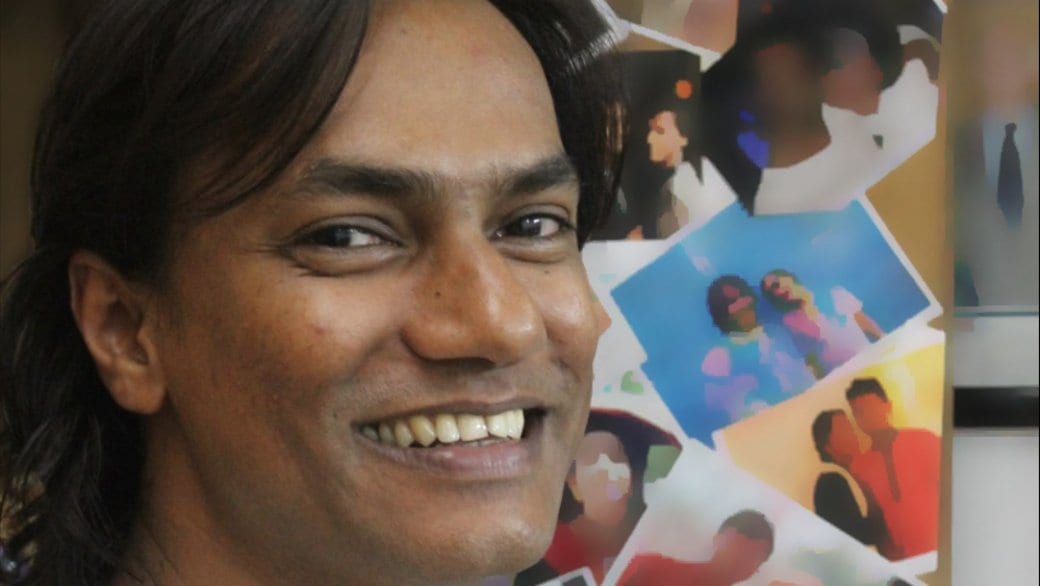Xulhaz Mannan knew he could be marked for death.
“There was a rumour just before our rally [for Bengali New Year] — it was also the time when the last blogger was killed — that they have also made a list of gay rights activists,” the LGBT activist and one of the founders of Bangladesh’s only LGBT magazine, Roopbaan, told me in an interview last May.
“I was asking if my name was there,” Mannan laughed in 2015. “If there is [a list], I wouldn’t be surprised.”
We were sitting cross-legged on the floor in Mannan’s bedroom in his apartment in Dhaka, Bangladesh, eating cookies and drinking tea as his cat walked from lap to lap. Two other LGBT activists, who now wish to remain anonymous, were also present for the interview.
Less than a year later, on April 25, 2016, Mannan and fellow LGBT activist Mahbub Tonoy were killed in that same apartment — hacked to death by at least five machete-wielding intruders.
Ansar al-Islam, a Bangladeshi affiliate of al-Qaeda, later claimed responsibility.
In the aftermath of the attacks, the LGBT community in the country quickly went underground.
“All of us are staying at home. The fear is grasping me from every corner; even inside the house I’m jerking every now and then. I cannot make a phone call to my friends and vice versa. The fear is not only for me but for my family and friends too,” one activist, who wants only to be known by the initials JA, told me the day after the murders.
In the terrifying and confusing days after the attacks, fellow activists would not even dare tell each other where they were hiding. Some chose to dress differently, with one woman saying she started covering her head and face.
“I am emotionally devastated now. I have no idea what’s going on or how to act. I believe I’m at a higher risk too and I will be killed too. All I want to do is live freely and fairly without any fear of death,” one activist, who doesn’t wish to be identified, told me soon after the murders.
Weeks later that fear has not lessened.
“On Tuesday morning my mother woke me up at 6am saying what if your name is on some list and they come for you,” JA says. “How could I say to her that I am fearing the same every second?”
While Mannan had received death threats in the weeks before his brutal murder, the killings still came as a surprise for many in the community.
“Things were heading uptown since the last time we spoke. There were more people willing to join the small projects and work for them. More people were reaching out on the internet. It looked good,” says an activist who asked to use the pseudonym Tashfia.
“Things were heading towards a positive result,” JA agrees. “There was a comic released, workshops were going on. Our youth leadership program had a significant number of heterosexual participants.”
Now, a sense of fear and hopelessness has settled over the LGBT community. Instead of a growing momentum of visibility, education and gaining heterosexual allies, the community as a whole has been shoved back into the closet.
“With the murders, all has come to a sudden stop,” JA explains. “Perhaps we were going too quickly and now there is only dead silence. . . I do not have any hope for Bangladesh now.”
Of course, life for the Bangladeshi LGBT community was difficult even before the murders. Section 377, a British colonial law criminalizing homosexuality that is still enforced in Pakistan, India and Sri Lanka, is also still used in Bangladesh to persecute and intimidate. Socially, LGBT people already faced bullying in school, rejection from family and friends, taunts, violence, and even criminal prosecution, though the situation may be a bit better for hijra people, who were legally recognized as a separate or “third” gender in 2013.
Several LGBT activists now feel forced to explore the possibility of seeking asylum abroad with the help of international organizations such as Amnesty International. Some have contacted Canadian organizations like Rainbow Refugee, Rainbow Railroad, and The United Church of Canada, which actively sponsors LGBT refugees.
“Xulhaz Mannan was not only an activist, he was a symbol of bravery, of hope, of a safe place, of shelter, of joy,” JA says. “So his killing is a tremendous loss and threat to all the LGBT people of Bangladesh.”
Bangladeshi police announced May 15 that they arrested an Islamic militant in connection with Mannan’s murder.
Radical Islamist groups have claimed responsibility for a series of murders of secular bloggers in the last two years in Bangladesh.
“The Islamist groups should be hunted down, with foreign help if necessary, and abolished from the face of this country,” Tashfia says. “They are responsible for the violence and whatever unrest is present in our country. . . If nobody takes severe actions against them, this country will be in jeopardy. As a result, the LGBT community will suffer the most.”
Last year, when asked if the problem was mainly Islamic fundamentalists, or if Christians and Hindus were also against them, Mannan said, “On this issue, they will all join hands if it’s about killing us. Or about preventing us from doing anything.”
“If you look at the trend of intolerance these days among some people, based on statements they’ve made on religion or on politics, it’s more like, ‘If I don’t agree with you, I’ll kill you,” Mannan told me.
“These people, I always say, if they came to me and talked to me I would have a chance to explain, this is why I do this. But they will not do that. They will just come and kill you.”
Unfortunately, Mannan was right.

 Why you can trust Xtra
Why you can trust Xtra


